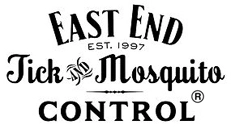While spring might not officially be here yet, it’s not too early to start checking for ticks. Conventional wisdom tells us that cold winter and lots of snow help kill off insects, including ticks. So it feels like we should be safe from the little critters as the snow melts and we start to see warmer temperatures, and sadly, that’s not necessarily the case.
Epidemiologists in Minnesota conducted a study a few years ago that showed heavy snowfalls might protect ticks from the frigid cold necessary to kill them. So when the snow melts, deer ticks might be very abundant.
But what do deer ticks in Minnesota have to do with ticks on Long Island? While the climate might not be the same, the principle is that the melting snow and warming temperatures might increase tick activity that people aren’t expecting.
As the snow melts and the temperatures increase, it’s more important than ever to check yourself, your family, and your pets for ticks after you’ve been outside. Tick activity is on the rise, even if it isn’t “tick season” just yet.
Are More Ticks Surviving Through Winter?
While there will be some variation year over year, the short answer is yes. Due to climate change and global warming, more ticks survive through winter leading to earlier tick seasons and more ticks.
A 2008 study discovered that climate change significantly influences the spread and population growth of ticks all over the world. In short, as we start seeing shorter winters, we’re also going to know a lot more ticks. Without frigid temperatures to kill them off, the tick population is just going to continue to look for people and animals to feed on.
Can Ticks Freeze to Death?
Yes, cold weather can help decrease the population of ticks, but it has to be colder than most people like and for a more extended period. The temperature must be below 10 degrees for multiple consecutive days for a significant die-off in ticks.
Worse yet, ticks like it when it’s wet, so melting snow is just about perfect for them. The temperature has to get above freezing for the snowmelt and ticks like humidity, and they prefer humidity at 85 percent or higher, so wet melting snow is good for them.
Are Ticks Harmful?
In addition to that creepy-crawly feeling that ticks bring, they can also be very dangerous to your family’s health and your pet’s health. In 2019, more than 8% of the ticks from Suffolk County submitted for testing at the SUNY Center contained some vector-borne pathogen. With the increasing number of ticks, the risk of infection also grows.
Call East End Tick & Mosquito Control® for Year-Round Tick Prevention
Are you looking for other ways to protect your family from ticks and the diseases they carry? Contact us to discuss mitigation options. East End Tick & Mosquito Control® is Suffolk County’s most-experienced pest control company. For more than 20 years, we have been using the most effective extermination methods to protect yourself and your family. Request a free estimate now or call our Southampton office at (631) 287-9700 , our East Hampton office at (631) 324-9700, or our Southold office at (631) 765-9700.


